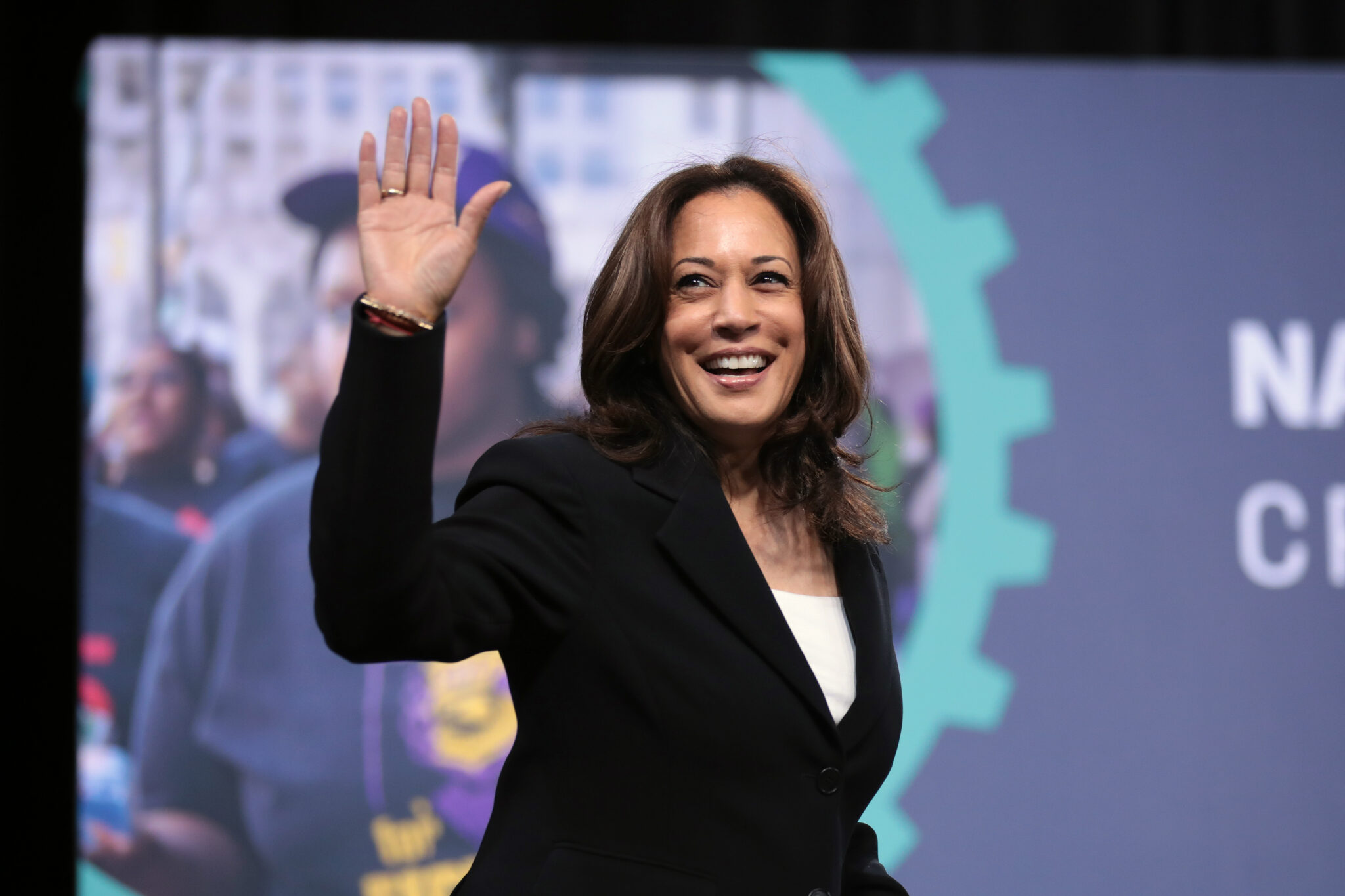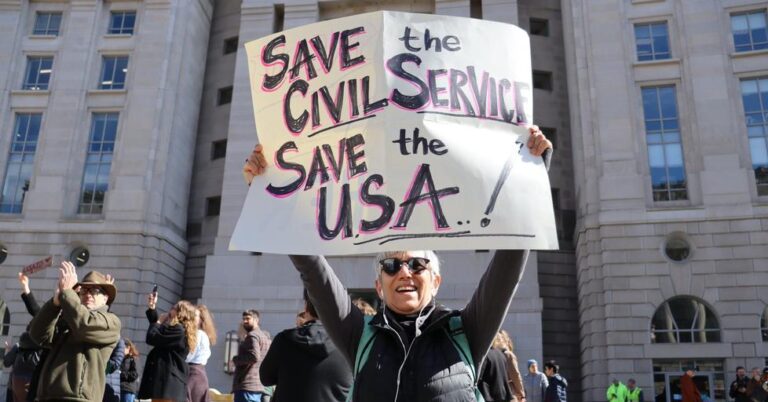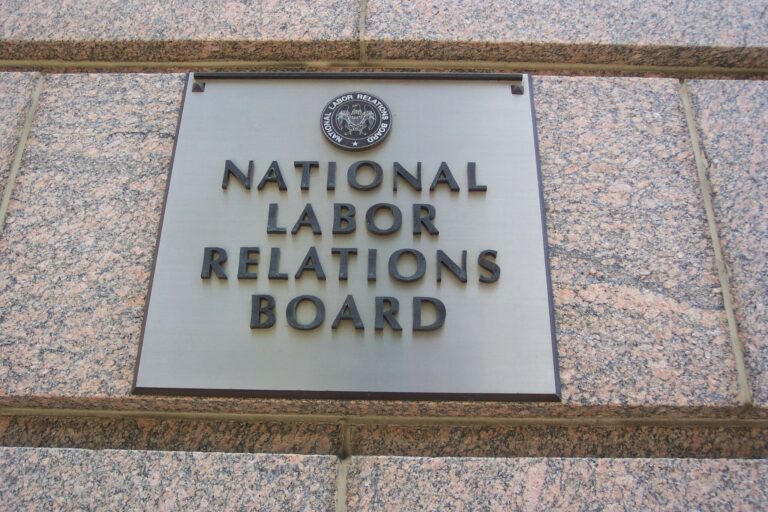
Sharon Block is a Professor of Practice and the Executive Director of the Center for Labor and a Just Economy at Harvard Law School.

Max Kiefel is a fellow at the Center for Labor and a Just Economy at Harvard Law School.
Are unions breaking up with the Democratic Party? In light of the party’s historical relationship with the labor movement, this question has been circulating widely since the 2024 election. That’s because even preceding Donald Trump’s victory in November 2024, the general trend of political realignment has seen blue-collar workers move away from the Democrats. The public debates over the explanation for this trend tend to focus on the party’s messaging and its relationship with identity-based groups, ignoring the actors that, historically, have proved so critical to mobilizing support amongst the working class: trade unions.
The Center for Labor and a Just Economy, in collaboration with the Columbia Labor Lab, commissioned a survey with over 1600 respondents that delved into the nature of union members’ relationship with the Democratic Party.
Our results found that unionized workers were significantly more likely to vote for Kamala Harris than their non-union counterparts. Analyses of the election results indicated that Democrats lost ground amongst some of their traditional support groups, in particular working-class Black and Latino communities. In our survey we found that more than 68% of Black union members reported voting for Harris, while 57% of Black non-union workers voted for the Vice President. Interestingly, roughly the same proportion — 24% — of Black union and non-union workers voted for Trump. The major difference was in turnout, with 7% of Black union members saying that they did not vote, compared to nearly 18% of Black non-union workers. Latino voters had a similar trend, as Harris’ support was higher amongst union members than non-union workers, but the major difference was in turnout.
There has been broad consensus that inflation was the defining issue of last year’s election. Our survey sought to understand whether union members considered inflation differently than other workers. We learned that union members understood the source of inflation and its political relevance differently than other workers and in a way that favored Vice President Harris.
Most significantly, union members’ views on who to blame for inflation resonated much more closely with the Harris campaign’s position than the views of other workers. Whether a worker was unionized did not impact how they experienced inflation, as 85% of respondents reported experiencing higher grocery prices and over 65% experienced higher gas prices. But unionized workers diverged in the way that they attributed blame for inflation: more than 48% of unionized respondents identified corporate greed as the main driver of inflation, compared to 40.5% of non-union workers. By contrast, this group tended to identify government decisions as mostly responsible, meaning they likely blamed the Biden administration for price increases. These differences are also present in the reasons that voters gave for their vote choice in 2024, where the most popular answer amongst union members was standing up for the middle class (28.4%), whereas for non-union workers it was the candidate’s plan to fight inflation (28.2%).
The only unions whose membership were more likely to blame the government, rather than corporate greed, for inflation were the Teamsters and members of the United Food and Commercial Workers, and interestingly these were the only unions whose membership were more likely to support Trump than Harris. This is not particularly surprising given the Teamsters’ international leadership declined to endorse Harris, but the overwhelming support for Harris amongst individual unions suggests that unions can provide an important forum for workers to interpret critical events.
An important finding in more general post-election analyses is the Democrats’ alarming loss of support amongst younger men. In this context, Harris’ refusal to go on podcasts like Joe Rogan has been criticized as a strategic blunder and has led to calls for Democratic candidates to spend more time in more diverse media venues. But we found that younger union members were far more likely to rely on a variety of news sources than members aged 45 or older who were far more likely to rely on traditional news sources. And unions are a small but significant information source for younger people, which suggests that they offer an opportunity to reach the types of voters with which the Democrats are struggling.
The notable caveat to this analysis is the overall trajectory of the labor movement is not a positive one. In 2024, union density fell to just 9.9% of the workforce, meaning that it is now half as powerful as it was during the Reagan presidency. The Trump Administration’s attacks on federal employee unions are of such a scale that they no doubt will further suppress union density. For unions to be an effective ally in the Democratic Party’s future, this trajectory would need to be reversed. Our research suggests that when unions act as an information source for their members, they have a real effect, but this requires ambition and resources.
In order for unions to continue to be critical actors in the fight for American democracy, they desperately need to revive their membership and to organize new members. The economic fallout from Trump’s “liberation day” tariffs is likely to lead to further inflation, and unions will be critical to shaping a trade policy that protects workers’ interests.
Our research shows that the Democratic Party could reclaim the benefit of its long-time alliance with the Labor Movement if it were to act as a partner in the project of facilitating more union organizing. Whichever party wants to contest for union members loyalty will need to offer new ideas and bold leadership to create a much more fertile environment for union organizing. Our research on the results of the 2024 election suggests that Democrats have much to gain from a stronger commitment to championing labor law reform to make it easier for workers to turn their desire for union representation into a reality.










Daily News & Commentary
Start your day with our roundup of the latest labor developments. See all
February 5
Minnesota schools and teachers sue to limit ICE presence near schools; labor leaders call on Newsom to protect workers from AI; UAW and Volkswagen reach a tentative agreement.
February 4
Lawsuit challenges Trump Gold Card; insurance coverage of fertility services; moratorium on layoffs for federal workers extended
February 3
In today’s news and commentary, Bloomberg reports on a drop in unionization, Starbucks challenges an NLRB ruling, and a federal judge blocks DHS termination of protections for Haitian migrants. Volatile economic conditions and a shifting political climate drove new union membership sharply lower in 2025, according to a Bloomberg Law report analyzing trends in labor […]
February 2
Amazon announces layoffs; Trump picks BLS commissioner; DOL authorizes supplemental H-2B visas.
February 1
The moratorium blocking the Trump Administration from implementing Reductions in Force (RIFs) against federal workers expires, and workers throughout the country protest to defund ICE.
January 30
Multiple unions endorse a national general strike, and tech companies spend millions on ad campaigns for data centers.